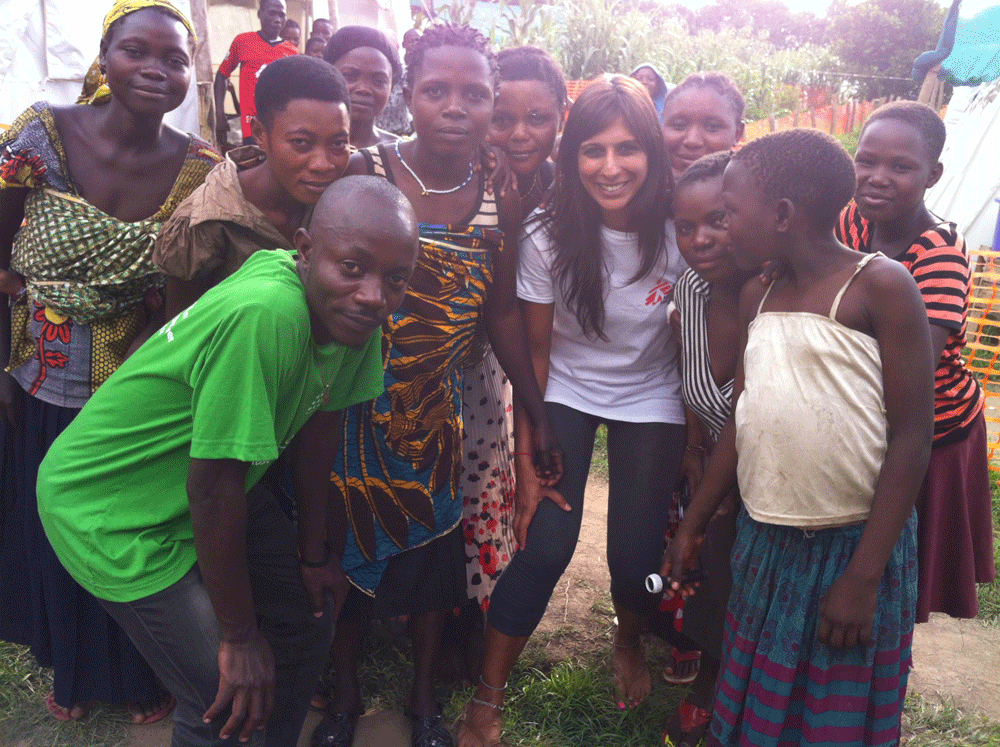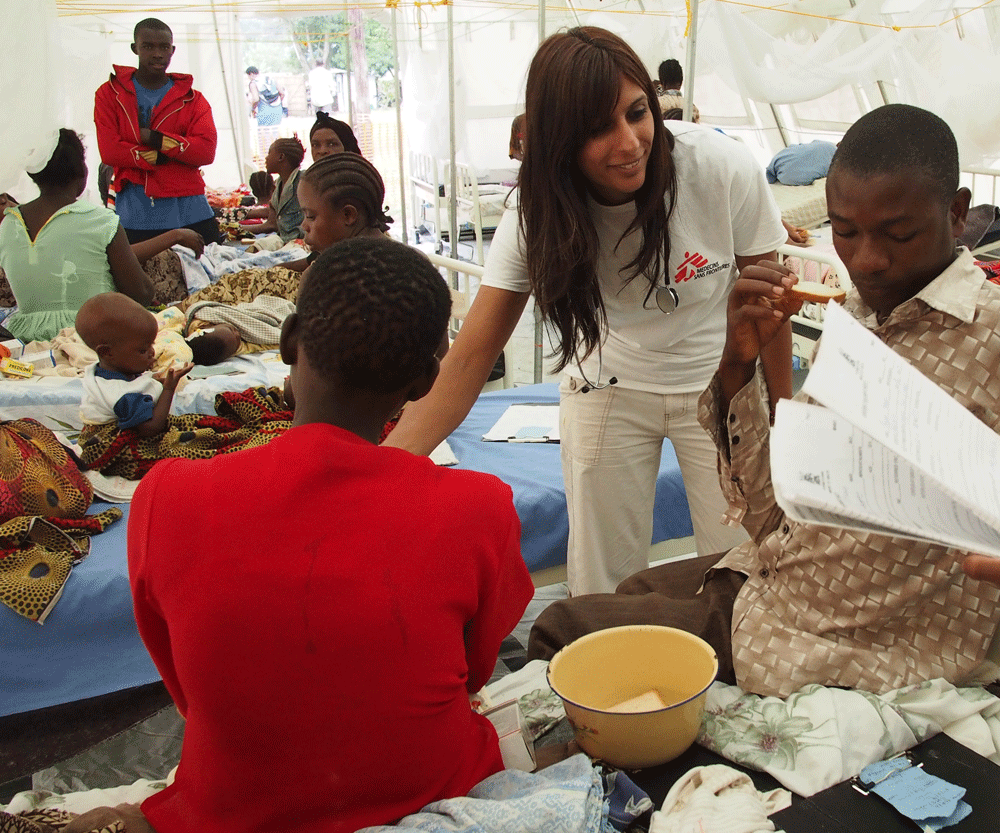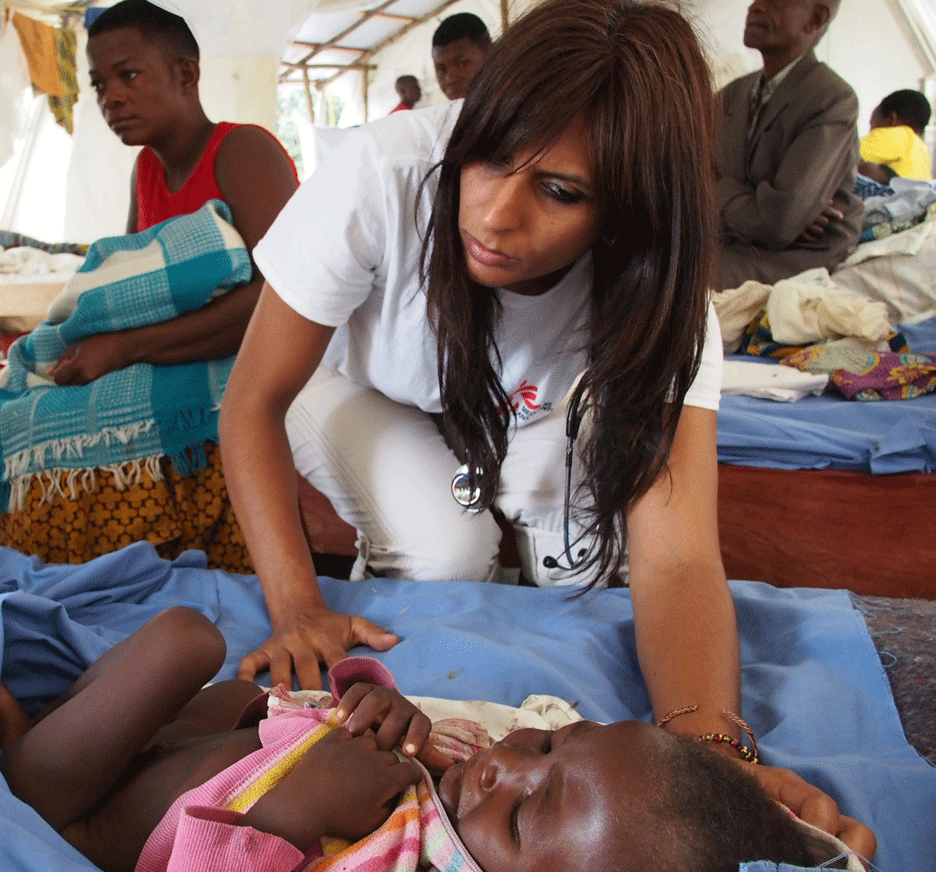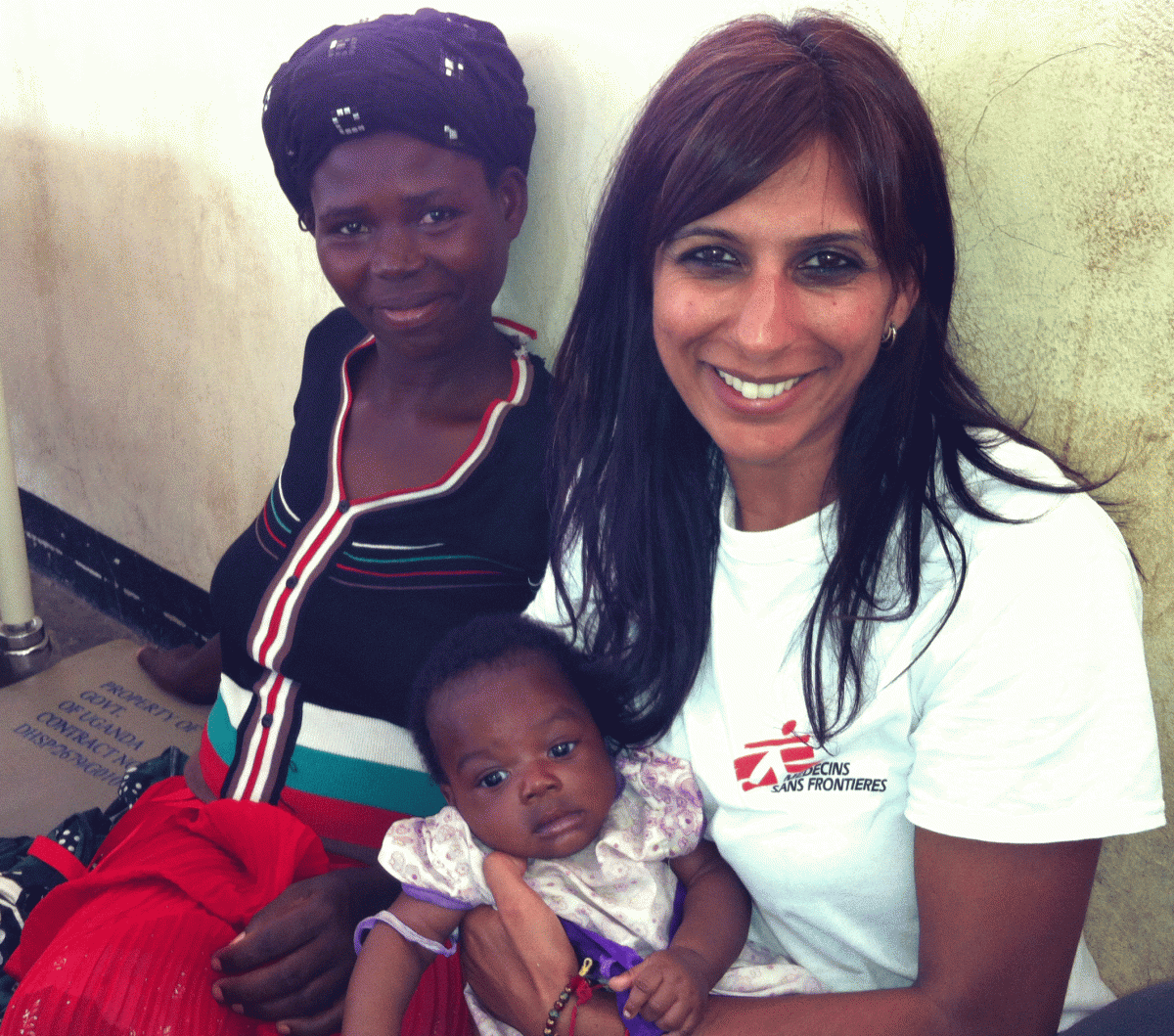A typical day in a hospital tent
 |
| Dr Nagji (in white MSF T-shirt) with nurse Joash (in green), the mamas of the maternity department, and some female inpatients outside of the IPD. Photo by Margie Barclay. |
Bubukwanga Health Centre reminds me of the conditions depicted in the TV show M*A*S*H. Our Médecins Sans Frontières tents create a cocoon that offers confidentiality and a level of competency that attracts a considerable crowd. And while the landscape may tempt you to think of transience and bush medicine—along with the intermittent power failures, the tent doors that zip open and windows that roll up, and the Swiss Army knives and plastic camping plates that accompany lunch—the strategically septated sections for our pharmacy, areas for minor procedures, rapid diagnostic tests for malaria, and the clinic and wards create the air of a hospital setting. So much so that a queue forms at 6 a.m., 6 days per week. Congolese from the adjacent refugee transit camp and a fair number of nationals come carrying their concerns, confidence, and of course, their children.
A typical day includes leading teaching rounds through our 40-bed inpatient department, which consists of our male, female, pediatric, and isolation wards (tents), followed by consults from the maternity/delivery department (one of our only actual buildings) and our outpatient department (again, tents), where we see approximately 400 patients per day.
The cases here are so scintillating, so advanced, or so sad that, like a sponge, I must soak up as many of the stories as possible and squeeze out as much as I can give. Every woman goes through labor and gives birth without a drop of analgesic. Conversely, almost every child admitted receives a litany of antibiotics and an IV, even if it must be administered in their head!
Whether faced with malaria, burns, infections, posttraumatic stress disorder, sexually transmitted infections, HIV, malnutrition, seizures, heart failure, or sickle cell disease, we manage these burdens and more in Bubukwanga. Like a pendulum, I swing from one department to another along little dirt paths. Along the way I pass clans sharing a meal under a tree, babes being bathed, and mamas sitting with their totos on the steps of the maternity department, mingling and catching up on the day’s events. And regardless of how many times I pass back and forth, we all greet each other in the lyrical, local ways. Every day, nonstop, the music plays, perfusing the skies and my soul while serious works gets done.
Sometimes the seriousness of a situation overwhelms our resources and we need to refer. Our lab services offer only a handful of rudimentary tests. A CBC, an entry-level blood test in the West, is a luxury here. So when the Nancy Drew in me needs more clues, or if surgery or a specialist must be involved, we transfer and transport the patients. I have sent only C-sections and transfusions to nearby Bundibugyo Hospital (a small improvement over our centre). For all else, I must justify the call of a 6-hour return journey to Fort Portal.
In spite of our limitations, what we see and what we do with what we have is exemplary. A visiting Italian photographer thought so too when he came for a tour. What he captured showed how teamwork, tenacity, time, knowledge, and tents can turn things around.
—Ashnoor Nagji, MD
Vancouver
 |
 |
| Dr Nagji reviews management plans with parents regarding nutrition and medications for twins during the inpatient teaching rounds on the pediatric ward. Photo by Fulvio Bugani. |
Dr Nagji assesses a pediatric patient with severe acute malnutrition during daily teaching rounds. Photo by Fulvio Bugani. |
 |
 |
| Dr Nagji with a young Congolese refugee who suffered injury secondary to issues regarding water collection. Photo by Margie Barclay. |
Dr Nagji sits with a Congolese mama and her infant on the floor of the maternity wing. Photo by Margie Barclay. |
hidden
Dr Nagji is a family physician based in Vancouver, currently with Médicins Sans Frontières near the Uganda/DRC border.
